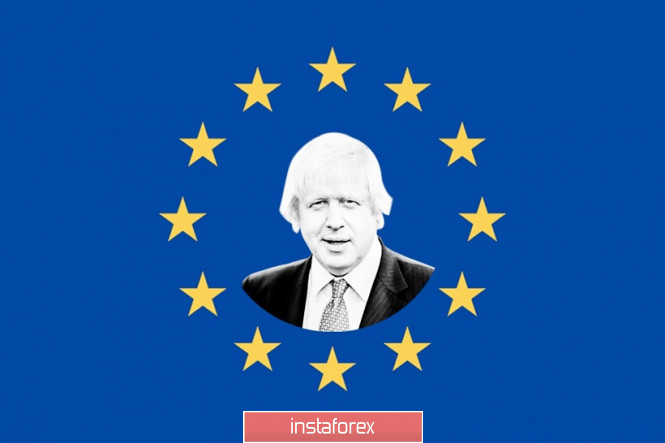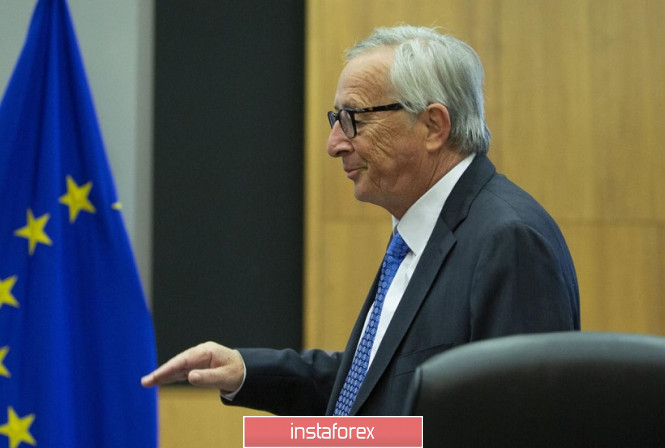The pound closed the trading week at 1.2498, having previously touched the boundaries of the 25th figure. The pair has not seen such a high in a few months, or to be more precise, since July. In mid-summer, when Johnson's victory became apparent, the pair plunged to the area of 21-22 figures, since then it has not risen above the 23rd level. But the Brexit issue still has a strong influence on the pair's traders.

As soon as the prospects for a "hard" scenario seriously loomed up on the horizon, the pair collapsed to around 1,1958 (a year-low). But the price immediately soared as soon as the hopes for approval of the transaction appeared on the market. This is despite the fact that the information itself, which served as a reason for strong corrective growth, was refuted by officials. But the pound, as if by inertia, still rose in price, reflecting increased demand. It is worth immediately warning: this price movement should be treated with extreme caution, since there are actually no reliable prerequisites for the restoration of the British currency. The bulls of the GBP/USD pair only took advantage of the latest rumors around the negotiation process. But, as a rule, such rumors are not subsequently confirmed, and high expectations of traders turn against the currency.
In this case, the immediate cause for the pound growth was the publication of the influential British newspaper Times. According to journalists, the Democratic Unionist Party (DUP) will soften its demands on the issue of the Irish border - they will agree to Northern Ireland's compliance with some EU rules after the country leaves the European Union, in exchange for the cancellation of the agreement on the Irish border in the old version. And despite the fact that as early as Friday some representatives of the DUP denied this information, the British currency still continued to grow. This can only be explained by general optimism that the parties will either compromise or delay the Brexit date. This optimism is not supported by any objective prerequisites - on the contrary, at the moment, the main players continue to demonstrate an uncompromising and fairly tough position.
For example, Irish Prime Minister Leo Varadkar said yesterday that the gap between Britain and the European Union regarding Brexit remains "very large." He recalled that Johnson promised to present alternatives to backstop, "which will suit everyone," however, as the head of the Irish government noted, the proposed scenarios are "far from what is needed." Similar comments were voiced by Michel Barnier, EU chief negotiator. Yesterday, he also commented on the current situation - quite briefly, but succinctly. According to him, "at the moment there is no reason for optimism."
As for the rumors regarding the position of the Democratic Unionist Party, here it is necessary to recall the situation almost a year ago. In November 2018, information similarly appeared on the market that the parties had agreed on the Irish issue, avoiding the tight border between Northern Ireland and the Republic of Ireland. This item caused a storm of indignation among the Unionists. They stated that they would terminate the coalition alliance with the conservatives if the territory of Northern Ireland becomes a de facto part of the customs territory of the EU. The complexity of the situation lies in the fact that the unionists have the so-called "golden share" - without the support of their ten deputies, the conservatives lose the majority in parliament. And taking into account the "defectors" and the "dissidents" excluded from the conservative ranks, Johnson needs the votes of not only unionists, but also independent deputies (or representatives of the opposition).
In addition, do not forget that if London provides Belfast with special conditions, then the Scots, who traditionally advocate European integration processes, may also make similar demands. Most Scots voted in a referendum to keep Britain within the EU, so after Brexit they will probably demand a second referendum on Scottish independence. Similar statements have repeatedly sounded in the walls of the Scottish Parliament.

Thus, the hopes for a historic breakthrough in the negotiations "coexist" with fears about the real actions of politicians. The pound behaves accordingly. And although optimism prevailed in the market on Friday, the pair's movements were abrupt and impulsive. Of course, trading in such conditions is a big risk, since the fundamental background for the pair is too unreliable, and the technique simply "does not work" in the medium and short term. For example, if the leadership of the DUP on Monday once again refutes this information, the pound will instantly collapse throughout the market, despite the signals of technical analysis.
To summarize, it is worth recalling that on Monday, September 16, British Prime Minister Boris Johnson will hold his first meeting with European Commission President Jean-Claude Juncker. Although at the moment nothing indicates a possible breakthrough in the border issue in Ireland, their rhetoric may inspire the bulls of the GBP/USD pair to further increase, or turn the pair 180 degrees. In any case, long positions in the pair are risky. It is advisable to make trading decisions following the results of the above meeting: Johnson and Juncker may pleasantly surprise or greatly disappoint the market.
The material has been provided by InstaForex Company - www.instaforex.com